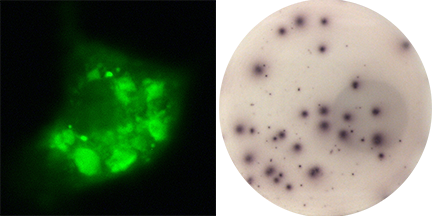DeKrey laboratory
Our research explores the areas of immunology and pharmacology with the applied goal of improving human and animal health.

The aryl hydrocarbon receptor (AhR)
Our long-term research goal is to define the role played by the AhR in regulating immunity. The AhR is a required factor for normal development and function of the immune system. The AhR can be activated and inhibited by a large number of compounds found in the environment such as foods and drugs, as well as some chemicals produced within our own bodies. This means the AhR acts as a sensor to detect changes in both the external and internal environments. Those environmental changes can drive differential regulation of immune function to the benefit or detriment of health.
Mucosal antibody responses
Antibodies represent the primary effector molecule of humoral immune responses. Antibodies are secreted from the body across mucosal barriers to act as a first line of defense against toxins and infectious agents. Antibodies also aid in controlling the various populations of our microbiota in the gut and elsewhere, and antibodies play an important role in tolerance to environmental antigens. Dysregulation of antibody responses has been associated with many acute and chronic diseases. We've shown that the AhR regulates antibody responses at mucosal barriers in ways that differ from what is observed in other body compartments. The focus or our current work is to explain this differential regulation.

